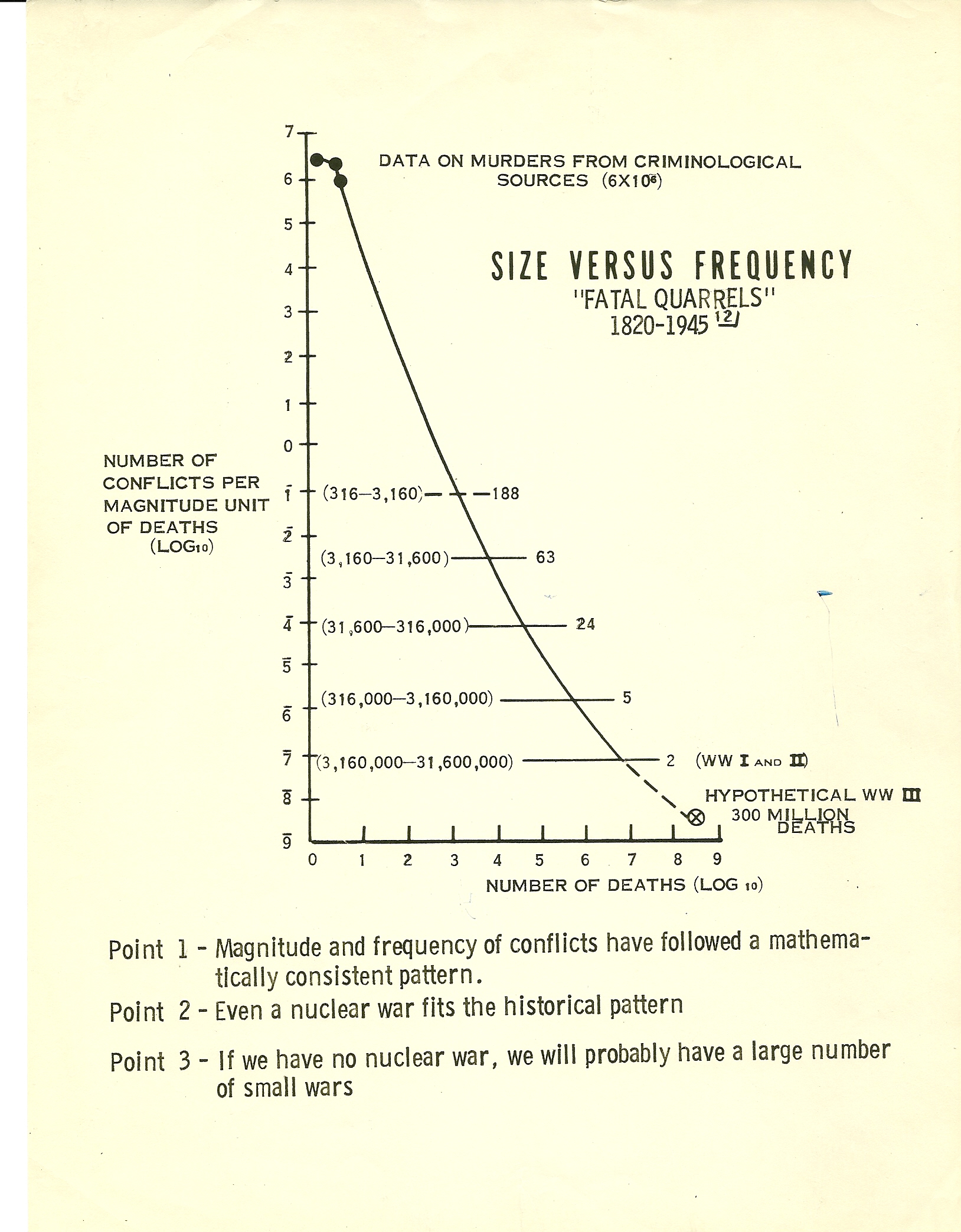It took me a few months to get used to the pace and complexity of doing work in the Pentagon. And to come to terms with the fact that I was being asked to make policy recommendations on very high level national security matters. Some of which I knew relatively little about. Yet often when there was a crunch, being expected to deliver my paper literally overnight.
Picking Herman Kahn's Brains
At one point in my first year, I and Paul Gorman were tasked to sum up the long term 'strategic interests' of the US around the world - regardless of what kind of relationships the US currently had with all those nations - heading toward totalling up to 100 by 1960s.
For that we did a study, and a budget with which to collect data from many large institutions, and think tanks like Rand Corporation. On populations, economies, natural resources, trade, military and industrial power or lack of it, political groupings, etc.
And we tapped Herman Kahn's 'Hudson Institute' run by he as one of the foremost futurists in the world, and one willing to argue that nuclear war was survivable by the US.
We grilled him for several hours at the Pentagon. Got interesting projections from him.
One of the most illuminating - to me - findings was that Nigeria was going to be a major strategic interest for the US for its large offshore Oil reserves - which would rise in importance as oil reserves peaked and declined in the Middle East. But at the same time that very populous country could become very politically unstable as the dominant and smarter, but minority Igbo Tribes - with Christian religion, were challenged by the much larger Muslim Hausas. While the entire Army was miniscule and the ONLY truley 'national' organization.
And events which have unfolded over the past 50 years have borne out our predictions and analysis.
Post-Nuclear War Planning
While much of that large study we did was classified, I can say that some very original suggestions came out of it in the event the major industrial centers of America were destroyed. To continue to prosecute the war against the Soviets to at least their desire for a cease-fire. By capitalizing on the resources from countries whom they would not target for nuclear strikes after their own weapons have been greatly reduced by our counter-strikes and larger numbers.
Study on Wars involving the US at the 'Lower End of the Spectrum of Warfare'
It was this study that Gorman and I worked on which led to a radical new way for the US Government, its Department of Defense, and the Army to both predict where such wars would occur and how the US should respond. And started a debate inside the Joint Chiefs even on how to describe, and name, such 'wars.' And on what general criteria to determine that the actions had reached, in fact, the level of 'war.'
I will attempt to trace the evolution of the insights that study gave to policy makers, just as I continued on while Gorman had been assigned to go to the National War College and was not involved with what followed,
It was this work, first inside the Army staff, and then on the staff of the Secretary of Defense that I made my most significant contribution to National Security in my uniformed career.
We studied over 100 wars to extract their common characteristics, from coups to projected nuclear.
We even found Mathmatical Models, such as Richardson's 'Fatal Quarrels.'

